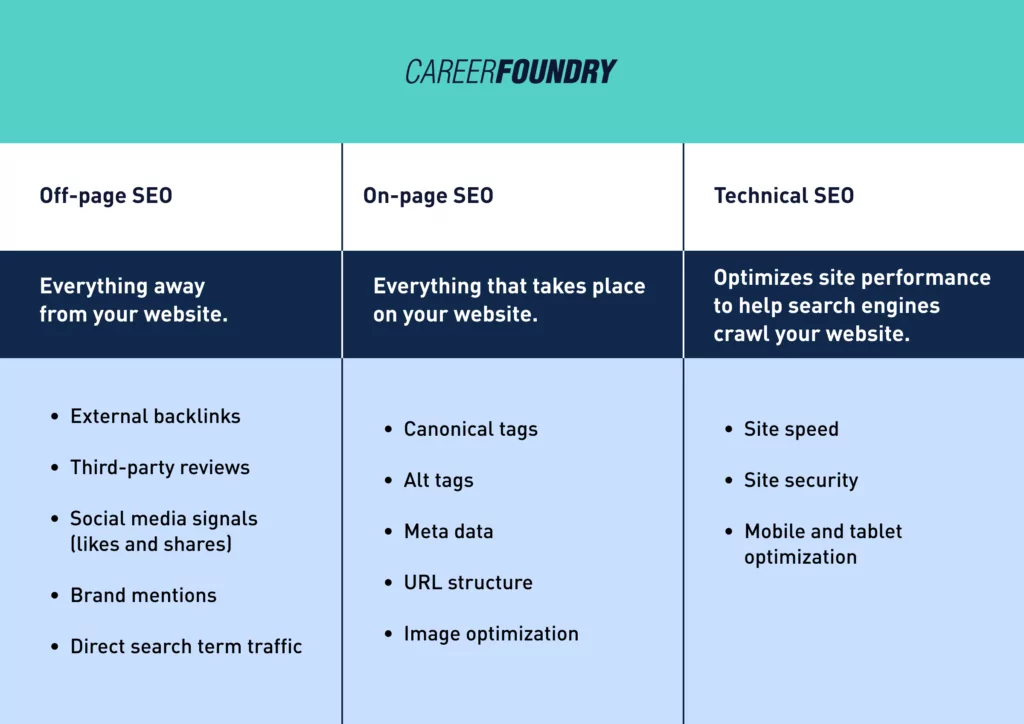Search engine optimization (often shortened to SEO) is a major part of digital marketing efforts. It can be complicated and time-consuming, but it is an effective way to get your site in the face of your target audience.
Search engines are a significant source of traffic for brands and organizations. This is no longer a secret, seeing how businesses seek out SEO specialists. Becoming an SEO expert requires experience, but the first step is to know all there is to know about the subject.
In this introductory guide, we’ll answer the question: what is SEO? We will give you a brief rundown of what SEO means and how it works. Use this clickable menu to skip to the section that interests you the most.
- What is SEO?
- Why is SEO important?
- How does SEO work?
- How can I learn SEO?
- What is SEO? Key takeaways
Ready to learn all about search engine optimization? Let’s get started!
1. What is SEO?
Search engine optimization, as the name implies, is the process of improving a website to make it easier to find via search engines like Google and Bing. It makes it more likely for the search engine to recommend it for relevant search words so that users can find you when it matters most.
SEO is a long game marketing channel that requires cumulative action to be successful. There are three main types of SEO:
What is SEO? On-page SEO
On-page SEO involves optimizing elements on your webpage to improve its search engine rankings. These elements include blog post headers and images, web copy, and internal links. On-page optimization includes actions like including keywords in your headings and subheadings to help the search engine recognize what your page is about.
What is SEO? Off-page SEO
This involves elements outside your website that help it rank for users’ search queries, such as backlinks and social media shares. For example, creating buzz about your website content on social media will increase the number of social shares and writing high-quality content with unique insights and engaging visuals will increase the chances of people linking to their content.
What is SEO? Technical SEO
These are the technical elements of the website that affect its ranking, such as the site loading time, search engine indexing, mobile friendliness, website structure or architecture, and the presence of sitemaps.
Want to learn more about the basics of SEO? We’ve got a complete beginner’s guide to SEO in this article.

2. Why is SEO important?
SEO is an integral part of digital marketing for the following reasons:
Increased visibility
With 29% of web traffic generated via search engines (second only to direct web traffic) it is an important channel for increasing visibility.
The role of SEO is to increase your chance of ranking highly on search engine result pages (SERPs) for relevant keywords. If your site is optimized correctly, it can be the first organic search result and have an average click-through rate (CTR) of 27.6%.
Most people don’t go past the first page of search engines like Google, so pages ranking on the first page see the highest increase in traffic and a greater chance of conversion.
Quality traffic
Organic search traffic tends to be high quality because content ranks for relevant search queries. As a result, conversion rates are higher, especially for bottom-of-the-funnel content that directs customers to convert—whether that means a sale of a product or signing up for a service.
For example, if a blog post about a list of shoes for wide feet ranks highly in a search for shoes for wide feet, it will appeal most to readers who are ready to buy.
Cost-effective
SEO can be laborious and time-consuming, but it is a cost-effective marketing method. Good SEO may require upfront costs like paying for keyword research tools, but once you get your site to rank, additional traffic comes at no cost.
Cost is a key difference between search engine optimization (SEO) and search engine marketing (SEM). Although they use search engines as marketing channels, SEM is paid advertising.
Find out more about the differences between SEO and SEM in this article.
3. How does SEO work?
SERPs typically show paid search results and organic search results on the same page (you can tell the difference easily by formatting, and paid search will often include an Ad tag). The focus of SEO is for your site to rank organically. These organic results are chosen based on the search engine assessment of their relevance to the search query and the quality of their content.
SEO works by optimizing your site to provide a good user search experience and provide content that matches the search intent. You need to understand the search needs of your audience and how search engines work. The job of a search engine is to produce relevant results for its users quickly, and it does so in the following way:
Crawling
Crawling is when a search engine sends its bot, called a crawler or spider, to read the content of the pages of a website to find out what it is about. These crawlers use parameters like keywords and associated digital content and links to determine whether a page contains valuable information to be in its index.
The generic name of Google’s web crawler is Googlebot, while the name of Bing’s web crawler is Bingbot.
Indexing
Indexing is the next process, where information from crawling is stored in the search index. An index is a digital library of information about web pages. When a web page is added to the search index, it can come up on SERPs.
Ranking
Ranking is the position the search engine gives a website page on its SERPs for a particular keyword. The way search engines rank pages remains undisclosed, but we know some factors that affect the user’s experience and appeal to the bots. They include:
- Backlinks
- Freshness
- Usability of site
- Quality of content
- Mobile-friendliness
- Website loading time
- Fulfilling search intent
- Technical SEO
The search engine algorithm is constantly changing because of the changes in user behavior and demands. Therefore, understanding how the algorithm works and ranks pages and creating strategies to please the users and search engine is how to win in SEO.
To get started, read this article on SEO tips for beginners.
4. How can I learn SEO?
SEO is both an art and a science. While there are things you’ll get to do instinctively, there are techniques you must learn.
Learn the basics
The first step to learning SEO is to get a fundamental understanding of the theories. You will need to learn how search engines work and the skills needed to optimize sites for favorable ranking. These skills include keyword research, SEO copywriting, and link building.
Universities do not typically offer degrees in SEO because it is a constantly changing field. However, there are many online resources in the form of blog posts, free and paid online courses, and boot camps. We rounded up a list of the best free SEO courses you can take.
If you’re changing career paths, you can opt for self-paced courses to keep learning while you’re still at your current job.
Learn by doing
With SEO, just like every other subject, the best way to learn is by doing. So, after you learn the basics, practice your new skills.
You can start by experimenting with a blog and executing the SEO strategies you’ve learned. Try them out, measure their impact and analyze the results. The results will show you lapses in your skill and push you to improve. Your practice blog can be a portfolio to submit to employers or clients if you choose to freelance.
You may also immediately intern in a digital marketing or SEO agency. You will learn on the job as you help them carry out their SEO strategies for various clients.
Keep learning
With SEO, you have to keep up with the trends or get left behind. So be aware of the new tools and techniques and stay abreast of the latest happenings and industry updates. You can do this by reading SEO blogs, listening to podcasts, or joining an active community of SEO experts.
Read this comprehensive guide on how to become an SEO expert.
5. What is SEO? Key takeaways
We hope you found this introduction to SEO helpful and that it has excited you to delve deeper into the field.
Some people believe that SEO is difficult because it is a fast-paced field with constant changes. We agree that there are by far less challenging career paths, but if you love innovation and excitement, you’ll enjoy it. It’s also incredible how many different fields it intersects with, including UX design.
It is also a financially rewarding path.
Some of our key takeaways:
- SEO is a field that requires you to keep learning as you go.
- Since all the search engine ranking factors are unknown, you must make multiple iterations and updates to get SEO right.
- In the end, SEO is about creating content and adjusting your site for humans and search engines.
To take a step further in your SEO learnings, check out this list of SEO courses you can take for free.
SEO is only one of many career paths in digital marketing. Find out more about the different types of digital marketing in this free, 5-day intro to digital marketing course.
You may also be interested in the following articles:
